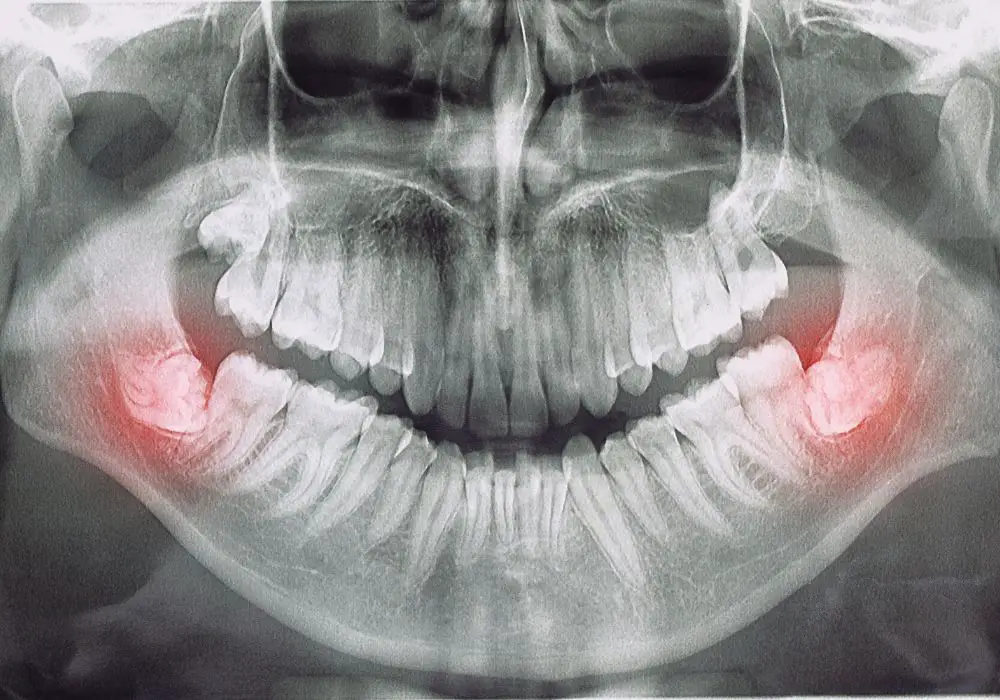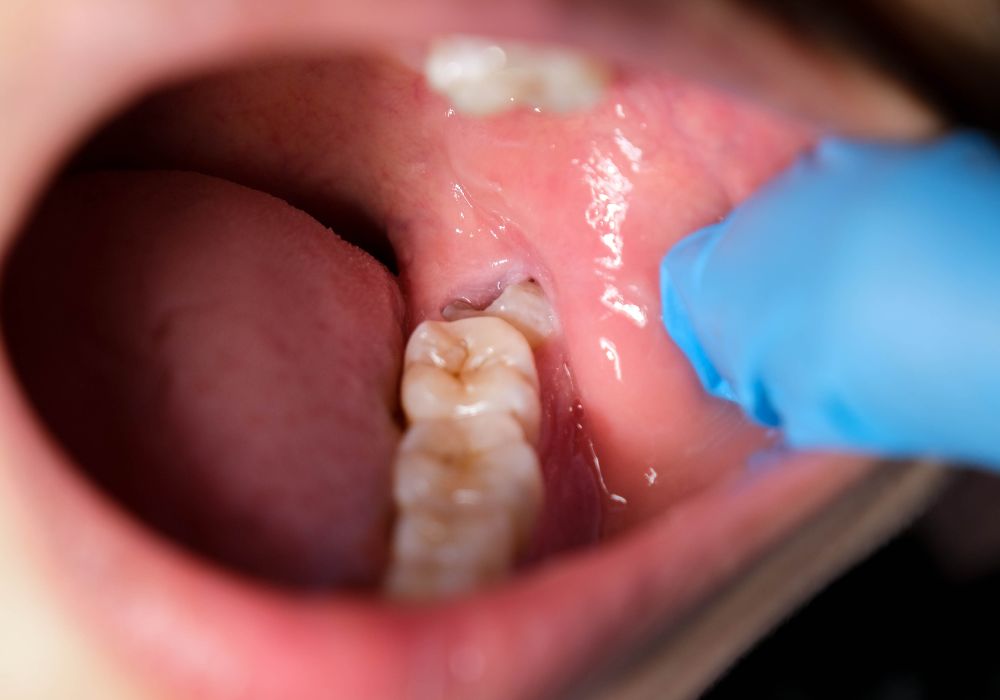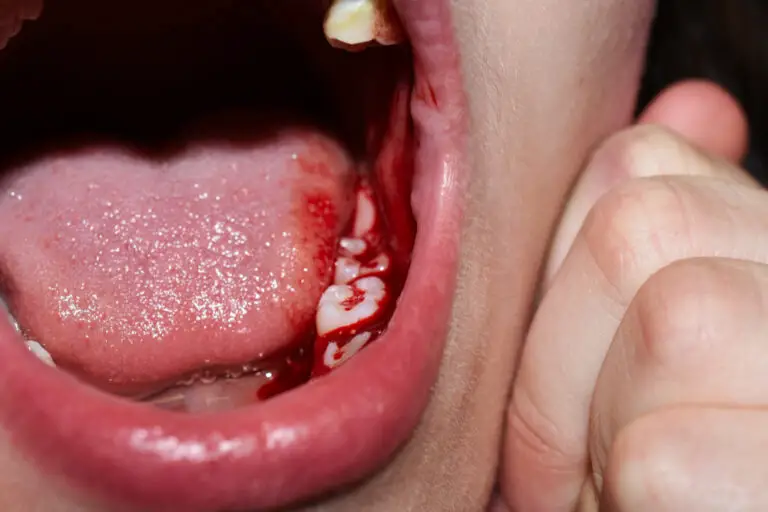Experiencing pain from wisdom teeth can be a common occurrence for many people, but it can be difficult to know when it’s time to see a doctor. Wisdom teeth are the third molars that typically emerge in the late teenage years or early twenties. While some people have no issues with their wisdom teeth, others may experience pain, swelling, or infection as the teeth emerge or push against neighboring teeth.
If you’re experiencing pain from your wisdom teeth, it’s important to evaluate the severity of the pain and determine if it requires medical attention. In some cases, over-the-counter pain relievers and home remedies may be sufficient to manage the discomfort. However, if the pain is severe or accompanied by other symptoms such as fever or difficulty swallowing, it may be time to see a doctor. In this article, we’ll explore when you should go to the doctor for wisdom teeth pain and what to expect during your visit.
Understanding Wisdom Teeth Pain

If you are experiencing pain in your wisdom teeth, it is important to understand the causes and symptoms of this discomfort. Here are some things you should know:
Causes of Wisdom Teeth Pain
Wisdom teeth are the last set of molars to emerge in the back of your mouth, typically appearing in your late teens or early twenties. Because they are the last teeth to come in, there may not be enough room for them to grow in properly. This can cause them to become impacted, meaning they are stuck below the gum line and cannot emerge fully.
Impacted wisdom teeth can cause pain and discomfort due to a variety of factors, including infection, inflammation, and pressure on surrounding teeth and gums. Other causes of wisdom teeth pain may include cavities, gum disease, or injury to the tooth or surrounding area.
Symptoms of Wisdom Teeth Pain
If you are experiencing pain in your wisdom teeth, you may notice a variety of symptoms. These can include:
- Pain or discomfort in the back of your mouth
- Swelling or tenderness in the gums
- Redness or inflammation in the affected area
- Difficulty opening your mouth or chewing
- Headaches or earaches
- Bad breath or an unpleasant taste in your mouth
If you are experiencing any of these symptoms, it is important to see a dentist or oral surgeon right away. They can examine your teeth and gums, take x-rays to determine the cause of your pain, and recommend appropriate treatment options.
Remember, pain in your wisdom teeth should not be ignored. By understanding the causes and symptoms of this discomfort, you can take steps to address the issue and prevent further dental problems.
When to Seek Medical Attention
If you are experiencing wisdom teeth pain, you may be wondering when you should seek medical attention. Here are some signs that indicate it’s time to see a dentist or oral surgeon:
Persistent Pain
If you have been experiencing pain for several days or weeks, it’s time to see a dental professional. Wisdom teeth pain can be persistent and can lead to other dental problems if left untreated. Your dentist or oral surgeon can evaluate your teeth and recommend treatment options, which may include removing the wisdom teeth.
Infection Signs
If you notice signs of infection, such as swelling, redness, or pus around the affected area, it’s crucial to seek medical attention immediately. Infections can spread quickly and lead to more severe health problems if left untreated. Your dentist or oral surgeon can prescribe antibiotics to treat the infection and recommend further treatment options.
Difficulty Eating
If you are having difficulty eating or opening your mouth, it’s time to see a dental professional. Wisdom teeth pain can make it challenging to eat, and if left untreated, it can lead to malnutrition and other health problems. Your dentist or oral surgeon can evaluate your teeth and recommend treatment options, which may include removing the wisdom teeth.
In summary, if you are experiencing persistent pain, infection signs, or difficulty eating due to wisdom teeth pain, it’s time to see a dental professional. Your dentist or oral surgeon can evaluate your teeth and recommend treatment options to alleviate your pain and prevent further dental problems.
Preparing for the Doctor’s Visit

If you are experiencing wisdom teeth pain, it is important to schedule an appointment with your dentist or oral surgeon. Here are some tips to help you prepare for your visit:
What to Expect
During your visit, your dentist or oral surgeon will examine your mouth and take x-rays to determine the cause of your pain. They may also ask you questions about your symptoms, such as when the pain started and how severe it is.
If your dentist or oral surgeon determines that your wisdom teeth need to be removed, they will discuss the procedure with you and answer any questions you may have. They may also provide you with instructions for before and after the procedure.
Questions to Ask
Before your appointment, it may be helpful to write down any questions you have about your wisdom teeth pain or the procedure. Here are some questions you may want to ask:
- What is causing my wisdom teeth pain?
- Do my wisdom teeth need to be removed?
- What are the risks and benefits of wisdom teeth removal?
- What type of anesthesia will be used during the procedure?
- How long will the procedure take?
- What can I expect during the recovery period?
- What can I do to manage pain and swelling after the procedure?
- When can I resume normal activities, such as work or exercise?
By asking these questions, you can better understand your condition and feel more prepared for the procedure.
Treatment Options
If you are experiencing wisdom teeth pain, there are a few treatment options available to you. The best course of action will depend on the severity of your pain and the underlying cause.
Pain Management
If your wisdom teeth pain is mild to moderate, you may be able to manage it with over-the-counter pain relievers such as ibuprofen or acetaminophen. These medications can help reduce inflammation and relieve pain. You can also try applying a cold compress to the affected area to reduce swelling and numb the pain.
Another effective pain management technique is rinsing your mouth with warm salt water. This can help reduce inflammation and promote healing. To make a salt water rinse, dissolve a teaspoon of salt in a glass of warm water and swish it around your mouth for 30 seconds before spitting it out.
Wisdom Teeth Extraction
If your wisdom teeth pain is severe or persistent, you may need to have your wisdom teeth extracted. Wisdom teeth extraction is a common dental procedure that involves removing one or more wisdom teeth. This procedure is typically performed by an oral surgeon.
During the procedure, you will be given a local anesthetic to numb the area around your wisdom teeth. The surgeon will then make an incision in your gum tissue and remove the tooth. After the tooth is removed, the surgeon will stitch up the incision and place gauze over the extraction site to help stop any bleeding.
After the procedure, you will need to rest for a few days and avoid strenuous activity. You may also need to take pain medication and antibiotics to prevent infection. It’s important to follow your dentist’s instructions carefully to ensure a smooth recovery.
In some cases, your dentist may recommend removing your wisdom teeth even if you are not experiencing pain. This is because wisdom teeth can cause a variety of dental problems, including crowding, infection, and decay. If you are unsure whether you need to have your wisdom teeth removed, talk to your dentist about your options.
Preventing Wisdom Teeth Pain

If you want to avoid wisdom teeth pain, there are some things you can do to prevent it. Here are two essential steps you can take:
Oral Hygiene Practices
Practicing good oral hygiene is essential to prevent wisdom teeth pain. This includes brushing your teeth twice a day, flossing daily, and using mouthwash regularly. It is especially important to clean the back of your mouth where your wisdom teeth are located.
When brushing, be sure to use a soft-bristled toothbrush and fluoride toothpaste. Brush gently in circular motions and pay special attention to the gum line. Flossing helps remove food particles and plaque from between your teeth, and mouthwash can help kill bacteria that cause bad breath and tooth decay.
Regular Dental Check-Ups
Regular dental check-ups are also crucial in preventing wisdom teeth pain. Your dentist can monitor your oral health and detect any problems early on. They may also take X-rays to see if your wisdom teeth are impacted or causing any issues.
If your dentist recommends wisdom teeth removal, it is best to follow their advice. Removing wisdom teeth before they cause problems can prevent pain, infection, and other complications.
By practicing good oral hygiene and seeing your dentist regularly, you can prevent wisdom teeth pain and maintain good oral health.
Frequently Asked Questions
What are the symptoms of an infected wisdom tooth?
If you have an infected wisdom tooth, you may experience symptoms such as pain, swelling, redness, and tenderness in the affected area. You may also have difficulty opening your mouth, bad breath, and a bad taste in your mouth.
How long does wisdom tooth pain usually last?
Wisdom tooth pain can last for a few days to a few weeks, depending on the cause of the pain and the severity of the problem. If the pain persists for more than a week, it is recommended to see a dentist.
When should I see a dentist for wisdom tooth pain?
You should see a dentist if you experience severe pain, swelling, or infection in the wisdom tooth area. Additionally, if you have difficulty opening your mouth or have trouble swallowing, it is recommended to seek medical attention.
What are the common treatments for infected wisdom teeth?
The most common treatment for an infected wisdom tooth is to have it removed. In some cases, antibiotics may be prescribed to help reduce the infection and pain.
How can I relieve wisdom tooth pain at home?
You can relieve wisdom tooth pain at home by using over-the-counter pain relievers such as ibuprofen or acetaminophen. Applying a cold compress to the affected area can also help reduce swelling and pain. Additionally, rinsing your mouth with warm salt water can help reduce inflammation and promote healing.
Can wisdom tooth pain go away on its own?
Wisdom tooth pain may go away on its own if it is caused by temporary inflammation or irritation. However, if the pain persists or is caused by an infection or other dental problem, it is recommended to see a dentist for treatment.







